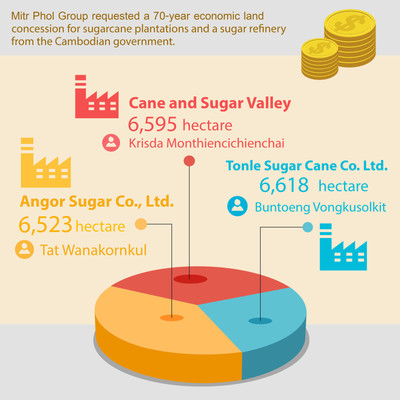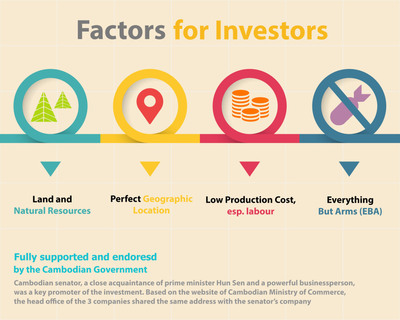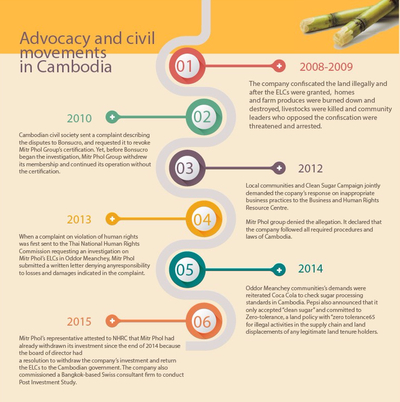The Mekong Butterfly| 21 September 2017
Infographic: Economic land concession sugarcane plantation and sugar industry, Oddar Meanchey Province, Cambodia
Around 2006, Mitr Phol Sugar Corporation., Ltd. One of the major sugarcane and sugar companies in Thailand began to expand their sugarcane production base to neighboring countries in order to produce sufficient quantity. This company is trying to compete in the global market by expanding production base to neighboring countries. This Infograhpic solely looks at the case of sugarcane plantation investment in Oddar Meanchey, Cambodia.

Infographic: Economic land concession sugarcane plantation and sugar industry, Oddar Meanchey Province, Cambodia
Around 2006, Mitr Phol Sugar Corporation., Ltd. One of the major sugarcane and sugar companies in Thailand began to expand their sugarcane production base to neighboring countries in order to produce sufficient quantity. This company is trying to compete in the global market by expanding production base to neighboring countries. This Infograhpic solely looks at the case of sugarcane plantation investment in Oddar Meanchey, Cambodia.

This case study shows the total number of economic land concession (ELCs)[1] obtained by Mitr Phol’s Cambodia-registered affiliated companies totaled to 19,736 hectares, which exceeded the maximum number of 10,000 hectare a single private entity may own. In addition, these ELCs overlap residential areas and farmlands


Everything But Arms Initiative (EBA) is the European Union’s (EU) scheme to promotes imports of products from the Least-Developed Countries (LDCs) without tariff and quota. The scheme aims to encourage exports among the LDCs in order to promote national economic growth.[2] Cambodia is considered a LDC and entitled to the privilege. that were currently cultivated by local communities.


Clean Sugar Campaign[3], a network of Cambodian non-governmental organizations, states the sugar concession and business operations of the 3 companies affect over 1,600 families in 2 districts. Communities struggle with forced evictions, land grabs, forest clearance and violent actions instigated by police officers and the military. Nearly 8,000 hectares of concession lands overlap community forest areas.[4]











